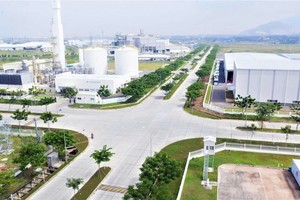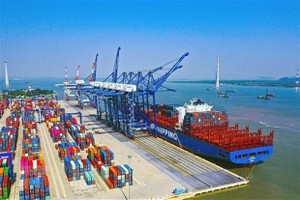
Yesterday’s statistics from the General Statistics Office of Vietnam revealed that in the first two months of 2024, Vietnam had 41,100 newly registered or reactivated businesses, a rise of 8.5 percent compared to this time last year. However, the number of companies permanently stopping their operation was 63,000, also an increase of 22.5 percent.
This has attracted the attention of the Government to improve the business environment for a brighter economic picture. It has launched several activities and introduced various resolutions and directions on this matter.
Ministries are now reviewing and simplifying business regulations in accordance with Resolution 68/NQ-CP, issued in 2020. Meanwhile, the Prime Minister’s task force to review legal documents is carrying out its annual mission to adjust any inadequate regulations. From 2021-2023, it was able to simplify nearly 2,500 business regulations in 201 legal documents. The Prime Minister has also approved proposals to simplify more than 1,100 business regulations in 221 legal documents.
Besides the good news, there is still trouble to address. Some of the above proposals still lack breakthroughs. Many problems voiced for a long time by enterprises have not been tackled yet. More seriously, during the process of amending inadequate regulations, there are newly released or redrafted ones that somehow add new barriers.
For instance, Decree No.10/2020/ND-CP asks that passenger transport companies must at least send the content of their contract to the Transport Department of the locality via email before each journey. With hundreds of trips starting each day, it costs these companies a large amount of money, whereas the management unit has to receive a huge quantity of emails per day to process.
Another trouble comes from the Law on E-Transaction 2023, effective as of July 1, 2024, which stipulates that a ‘trust service’ is a conditional business line whose operations include the provision of ‘electronic data authentication services’, licensed by the Ministry of Information and Communications. However, according to Decree 52/2013/ND-CP, the service of ‘electronic contract authentication in commerce’ is licensed by the Ministry of Industry and Trade. This means a ‘trust service’ must register for two licenses from two ministries.
Yet another inadequacy lies in an issue that has existed for 7 years already. As stipulated in Decree 09/2016/ND-CP by the Government, iodine must be added to the salt for cooking and food processing, while the wheat flour for food processing must include iron and zinc. This goes against the principles of risk management and is not in compliance with the recommendations of the World Health Organization, possibly leading to harmful influences on consumers’ health. The Government has already released Resolution 19/2018/NQ-CP, asking for amending this regulation; yet until now, there is no decree for this.
Obviously, the introduction of proper policies is a necessary condition to provide a better business environment, but it is the improvement in the capability to carry out those policies effectively that truly forms a friendly and favorable environment for enterprises.
It is not unreasonable when businesses wish for mechanisms to handle any ministries, state agencies, individuals that are slow in implementing the Government’s directions. This will tighten public service discipline as well as increase the accountability of the leaders of state units for a stronger driving force for profitable business activities in the community.
























